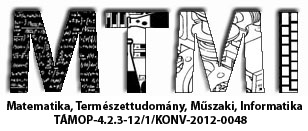Public Attitudes Associated with Mental Illness
Előadás adatai
.According to the World Health Organization, "one in four people in the world will be affected by a mental or neurological disorder at some point in their lives". These mental disorders are manageable or even curable, but "nearly two-thirds of people with a known mental disorder will never seek help from a health professional", mostly due to public perceptions regarding mental illnesses and stigma towards people with mental illnesses.
The aim of this project was to investigate these attitudes and the possible factors that influence them. We surveyed hundreds of people and we considered many potential factors including age, sex, religion, educational status (as a proxy for socioeconomic status), visibility (knowledge of someone with the illness), nationality and country of residence (we focused on two countries: Nigeria and Hungary), and medical knowledge (medical students and medical practitioners). In the project, we focused on Depression and Schizophrenia as models of mental illnesses. We used Asthma as control.
The questionnaire started with a short clinical vignette of a named person (male or female) with an unnamed illness (Depression or Schizophrenia or the control: Asthma). The cases where personalized and included the main classical symptoms of the illnesses. It was then followed by 45 questions, ranging from public perception of the causes of the illness and predictions about the patient's character, to suggestions the respondent would give to the patient and behaviours the respondent would exhibit towards the patients.
Based on statistical analysis of this survey, we would like to point out the main features of public prejudice associated with mental disorders. Hopefully, it will help the better understanding of this dangerous phenomena which might prevent the patients from seeking the right professional treatment.
Támogatók: Támogatók: Az NTP-TDK-14-0007 számú, A Debreceni Egyetem ÁOK TDK tevékenység népszerűsítése helyi konferencia keretében, az NTP-TDK-14-0006 számú, A Debreceni Egyetem Népegészségügyi Karán folyó Tudományos Diákköri kutatások támogatása, NTP-HHTDK-15-0011-es A Debreceni Egyetem ÁOK TDK tevékenység népszerűsítése 2016. évi helyi konferencia keretében, valamint a NTP-HHTDK-15-0057-es számú, A Debreceni Egyetem Népegészségügyi Karán folyó Tudományos Diákköri kutatások támogatása című pályázatokhoz kapcsolódóan az Emberi Erőforrás Támogatáskezelő, az Emberi Erőforrások Minisztériuma, az Oktatáskutató és Fejlesztő Intézet és a Nemzeti Tehetség Program



